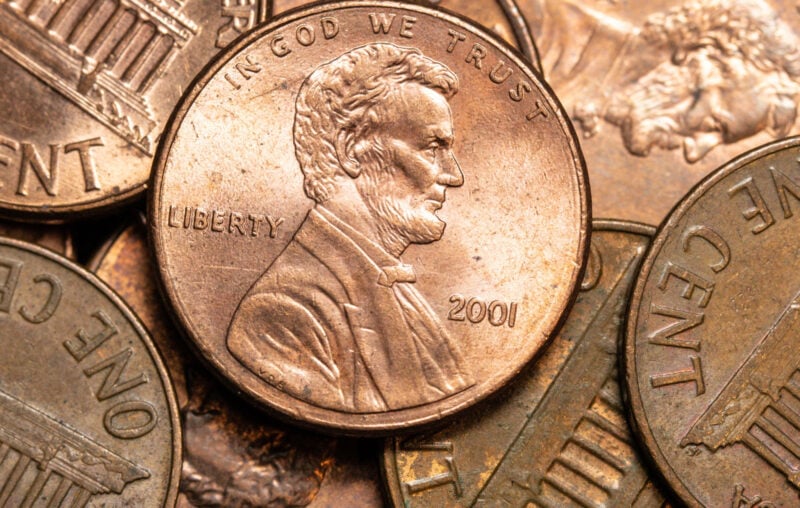As more candidates throw their hats into the 2024 Presidential ring, I’d like to offer a proposal that should have immediate bipartisan support: stop minting pennies and nickels. The economic case is a slam dunk. It costs about 1.5-2 cents to make a penny and about 7-8 cents to make a nickel, subject to fluctuating copper, nickel, and zinc prices at a point in time. If we stop using two cents worth of resources to create something worth one cent, and seven cents worth of resources to make something worth five cents, ditching these coins offers a pretty handsome return.
They will still be legal tender, of course, but as inflation has proceeded apace, it has gotten to the point where merely handling small change almost isn’t worth the effort for the vast majority of people. Ask yourself: when you see a penny on the sidewalk, do you pick it up? Should you pick it up? If your time is worth $30 an hour, then unless you can do it in under eight-tenths of a second, it’s not worth it. It might still be worth it for a nickel, but you have to be quick.
Ditching small coins is about more than narrow financial savings. It is also a test case for effective governance. Getting rid of the penny is an absolute economic slam dunk, and if we can’t agree to get rid of something that unambiguously wastes resources, then we have much bigger problems. If we can’t trust the government to do something as simple as stop producing something that consumes more resources than it is worth — to literally stop destroying wealth — then what hope do we have for our loftier visions for what we want governments to do?
Pennies and nickels are politically resilient. Why? It’s a straightforward story of concentrated benefits and dispersed costs that is pretty easy to understand. To stop minting small coins would, of course, hurt the people who mine, refine, and transport the raw materials that go into them. There are unionized government employees at the US Mint with a stake in it. To this I have two responses:
First, it seems like it wouldn’t be too difficult to pacify the special interests by using those raw materials to mint a higher-value coin. Perhaps we should mint more fifty-cent pieces. They’re worth about what a quarter was worth twenty years ago. Or maybe inflation has proceeded far enough that we can also replace fragile one-dollar bills with much more durable one-dollar coins. I suspect there would be at least one lucrative government contract involved in reorganizing the mint to produce larger coins rather than pennies. This seems like a case where special interests shouldn’t be too hard to buy off.
Second, if we can explain away the persistence of the penny in terms of special interests — and we can — what makes us think we will be able to overcome concentrated benefits and dispersed costs when there is a lot more at stake?
It’s also tempting to reply that pennies and nickels are chump change, when there are far more important things at stake. I don’t know how much we spend minting these coins every year, but I doubt it’s very much — and note that for a federal government with a $6 trillion budget, “very much” means that even a few billion dollars is rounding error. Maybe we should concentrate our political will elsewhere, but I still think the fact that we’re still minting new pennies and nickels tells us a couple of things.
To reiterate, if we can’t overcome the twin forces of concentrated benefits and dispersed costs when we’re talking about something as unambiguous as “let’s stop wasting resources minting pennies and nickels,” what hope do we have when we’re dealing with the big parts of the federal budget, namely, entitlement programs, social assistance, and the military?
Taking care of the small stuff is a pretty credible signal that we can be trusted with the big stuff. Every semester, professors across the country teach hordes of idealistic students who have grown up thinking they can change the world, and who come into their classes with big visions about a better future. I’m glad they think things can be better, but I’ll be more willing to trust them with the future when they show they can attend class and turn in assignments on time.
One of the better student presentations I’ve seen in my principles of macroeconomics class at Samford explained how penny production wastes resources. Smithsonian magazine reports (a little hyperbolically) that the penny is “an environmental disaster.” If we don’t have the vision and political will to do something as unambiguously beneficial as to stop minting pennies and nickels, then perhaps “vision and political will” aren’t going to give us the better future we want.



